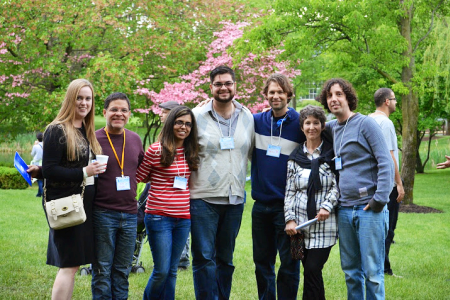
We have been with you for many years now, some for a great many years, and we’ve been studying the wisdom of Kabbalah. When people come to study Kabbalah, they learn about Sefirot worlds, Partzufim, Aviut, Zakut, Zivug de Haka’a, lights, Kelim [vessels]—to learn the special mechanics between the light and the desire. It is unknown where this light is. It is “out there.”
Where is the desire? It’s also… we don’t actually attribute it to us. It turns out that we’re learning something abstract, but we do learn it. We have the “Preface to the Wisdom of Kabbalah,” and “The Study of the Ten Sefirot,” which is what we have been learning, without any seeming connection to ourselves.
Afterwards, we started studying the essays of Rabash. He also didn’t write them before he had new students, in the emergence of a new era. When I brought him students, then instead of the five veteran students who studied even with Baal HaSulam, all of a sudden there were new guys, 25-30 years old. So he started writing these social articles. Why? It was because he saw that here you could actually implement the wisdom of Kabbalah, but in a small group, a small society. That’s why he wrote these articles, such as “They Helped Every One His Friend,” how we should connect in a group, etc.
As we advanced, the next stage came. In the next stage we started circulating a little bit, disseminating the wisdom of Kabbalah outside the group, and people started coming in. Many people came, learned a little, left, came again, left again, and time passed.
Then came an even more special time, when the world got into a crisis. The crisis was around long before 2008, but no one would talk about it. Experts saw that there was a crisis a few years back, but it was forbidden to talk about it.
Once the world was in global crisis, not just an economic crisis where the stock market fell or some bank collapsed, but the world started viewing itself as being connected in a bad system, where they are trying to do something together, unified, like the united Europe, and so on. We have no choice; we depend on each other, and it is not up to us. However, the laws by which we are connected to each other are egoistic, so instead of using each other correctly, we spoil it. Previously it was not like that.
Continue reading “How the ONE Convention this August Will Aim to Explain the Wisdom of Kabbalah as Being the Wisdom of Connection”


